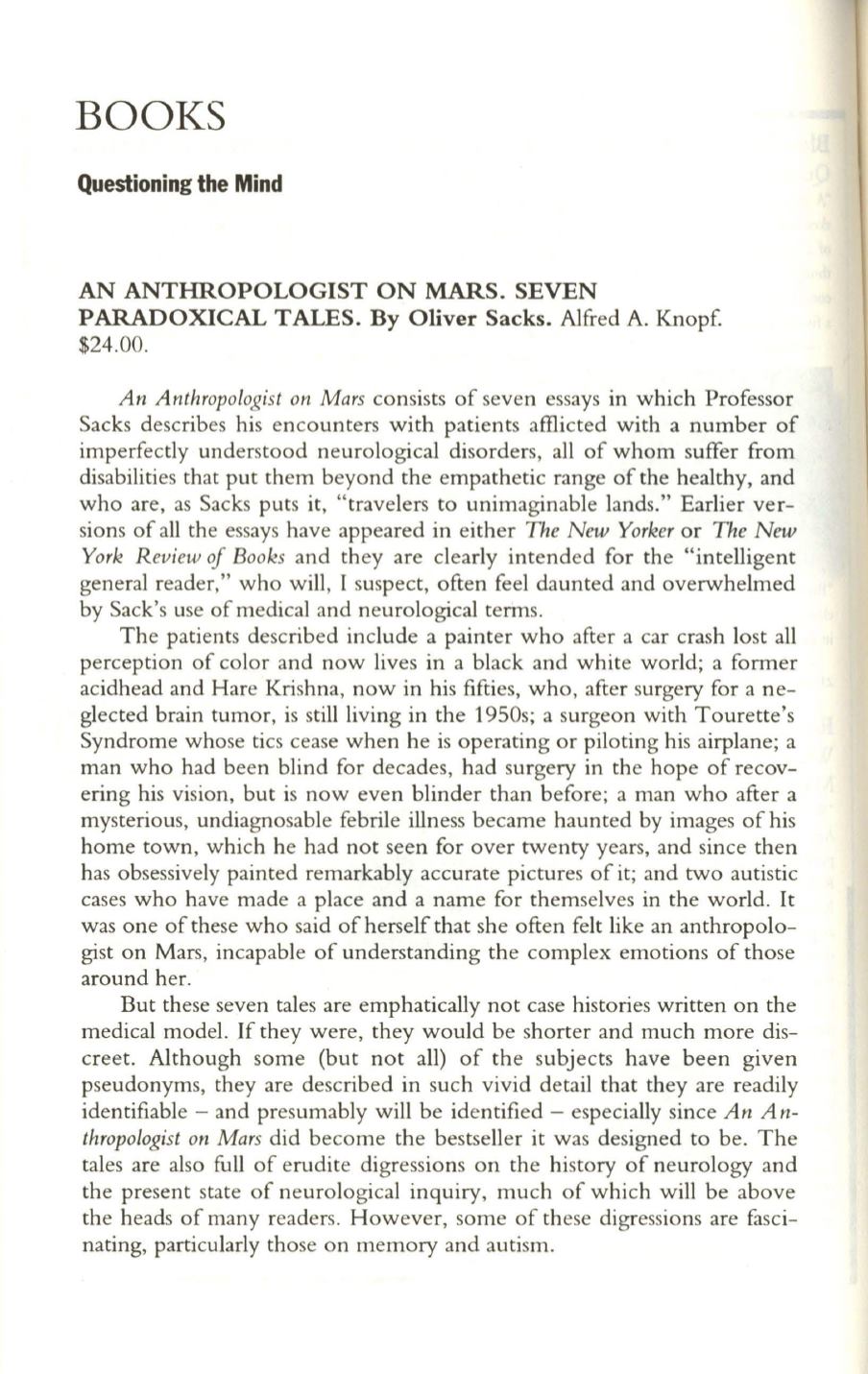
BOOKS
Questioning the Mind
AN ANTHROPOLOGIST ON MARS. SEVEN
PARADOXICAL TALES.
By
Oliver Sacks. Alfred A. Knopf
$24.00.
An Anthropologist on Mars
consists of seven essays in which Professor
Sacks describes his encounters with patients affiicted with a number of
imperfectly understood neurological disorders, all of whom suffer from
disabilities that put them beyond the empathetic range of the healthy, and
who are, as Sacks puts it, "travelers to unimaginable lands." Earlier ver–
sions of all the essays have appeared in either
The New Yorker
or
The New
York Review of Books
and they are clearly intended for the "intelligent
general reader," who will, I suspect, often feel daunted and overwhelmed
by Sack's use of medical and neurological terms.
The patients described include a painter who after a car crash lost all
perception of color and now lives in a black and white world; a former
acidhead and Hare Krishna, now in his fifties, who, after surgery for a ne–
glected brain tumor, is still living in the 1950s; a surgeon with Tourette's
Syndrome whose tics cease when he is operating or piloting his airplane; a
man who had been blind for decades, had surgery in the hope of recov–
ering his vision, but is now even blinder than before; a man who after a
mysterious, undiagnosable febrile illness became haunted by images of his
home town, which he had not seen for over twenty years, and since then
has obsessively painted remarkably accurate pictures of it; and two autistic
cases who have made a place and a name for themselves in the world. It
was one of these who said of herself that she often felt like an anthropolo–
gist on Mars, incapable of understanding the complex emotions of those
around her.
But these seven tales are emphatically not case histories written on the
medical model. If they were, they would be shorter and much more dis–
creet. Although some (but not all) of the subjects have been given
pseudonyms, they are described in such vivid detail that they are readily
identifiable - and presumably will be identified - especially since
An An–
thropologist on Mars
did become the bestseller it was designed to be. The
tales are also full of erudite digressions on the history of neurology and
the present state of neurological inquiry, much of which will be above
the heads of many readers. However, some of these digressions are fasci–
nating, particularly those on memory and autism.


